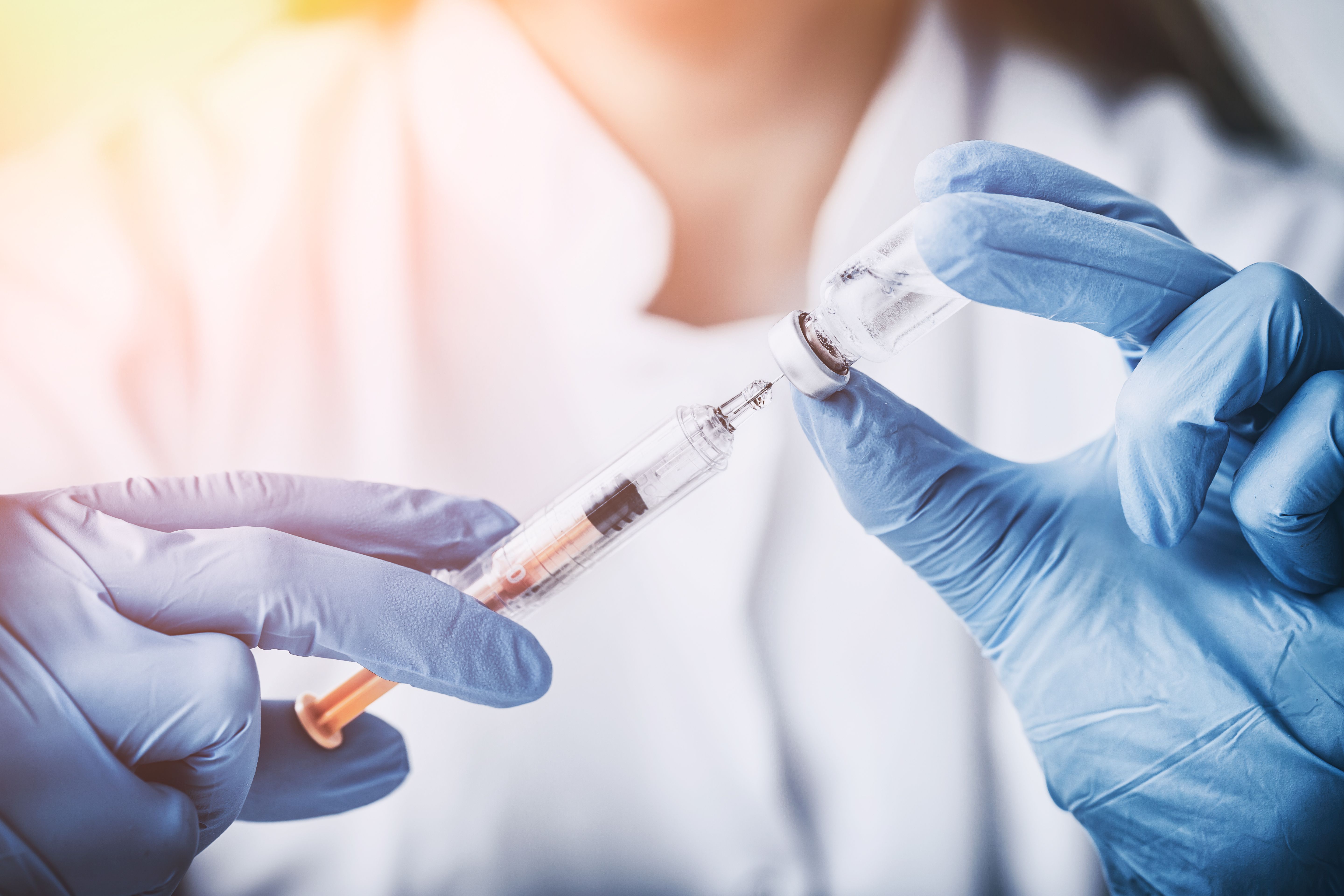COVID-19 Vaccination Rates in Patients with SLE Comparable to Matched Controls
"Surveys of patients with SLE and other autoimmune and inflammatory rheumatic diseases have identified vaccine hesitancy in up to 50% of patients, which may be related to concerns about side effects, potential disease flares, or lack of data among patients with SLE.”
Patients with systemic lupus erythematosus (SLE) registered in the Lupus Midwest Network (LUMEN) had similar COVID-19 vaccination rates when compared with matched controls, with most choosing to vaccinate when the vaccine became available, according to a study published in The Journal of Rheumatology.1 However, while patients with SLE are at a higher risk of poor outcomes from COVID-19, 1 in 6 patients are currently unvaccinated.

“Vaccinations against COVID-19 have been shown to be safe and effective and first became available for use in the United States on December 14, 2020,” investigators explained. “However, surveys of patients with SLE and other autoimmune and inflammatory rheumatic diseases (AIIRDs) have identified vaccine hesitancy in up to 50% of patients, which may be related to concerns about side effects, potential disease flares, or lack of data among patients with SLE.”
Vaccination uptake for influenza, pneumococcal, and zoster vaccines before pandemic restrictions began (March 1, 2020) were assessed in 342 patients with SLE registered in LUMEN, part of the Rochester Epidemiology Project (REP), and 350 age-, sex-, county-, and race-matched comparators. Eligible patients with SLE fulfilled the 2019 European Alliance of Associations for Rheumatology/American College of Rheumatology classification criteria for SLE on January 1, 2015. First-dose COVID-19 vaccine information was obtained electronically from December 15, 2020, through July 31, 2021. Information on demographics, weight, height, smoking status, SLE manifestations, current medications, time to COVID-19 vaccination, Area Deprivation Index, Rural-Urban Commuting Area codes, and Charlson Comorbidity Index were collected and compared between groups.
As of July 31, 2021, 83.3% (95% CI 78.6-86.9) of patients with SLE and 85.5% (95% CI 80.7-89.1) of comparators reported to have had at least 1 dose of the COVID-19 vaccine. Vaccination rates were similar among patients in the SLE cohort and controls after adjusting for age, sex, and race (hazard ratio [HR] 0.93, 95% CI 0.79-1.10); P = 0.40). At the 4-month mark, > 70% of patients and controls were vaccinated.
Compared with vaccinated patients, unvaccinated patients were more likely to be men (27.3% vs 14.1%), younger (mean age 54.1 [SD 14.6] vs 58.8 [SD 15.4] years), less frequently vaccinated with influenza and pneumococcal vaccines, and had a shorter SLE disease duration (median 7.3 [IQR 2.6-13.4] vs 10.7 [IQR 4.7-20.3] years). Patients who were unvaccinated were more likely to have a history of class II or V lupus nephritis when compared with vaccinated patients (16.7% vs 8.0%, respectively).
The study was strengthened by collecting the population-based data up to July 31, 2021, when vaccines were readily available and those who wished to get vaccinated would have the opportunity to do so. SLE diagnosis and vaccination status were confirmed via access to medical records provided by the REP. However, results may not be generalizable as LUMEN is based in the American upper Midwest. Information on disease activity and damage was not available at the time of the analysis. Further, as investigators chose to focus on those who received at least 1 dose of the COVID-19 vaccine, they did not gather information on the completeness of the vaccination series.
“More studies are needed to evaluate how other factors like disease activity or damage may influence the decision to get vaccinated or not against COVID-19 in patients with SLE,” investigators concluded. “Our findings suggest that the COVID-19 vaccination uptake among patients with SLE is not different to the general population and that there is an opportunity to reduce vaccine hesitancy among those patients with SLE who are newly diagnosed, among men, and younger patients.”
Reference:
Chevet B, Figueroa-Parra G, Yang JX, et al. COVID-19 Vaccine Uptake Among Patients With Systemic Lupus Erythematosus in the American Midwest: The Lupus Midwest Network (LUMEN) [published online ahead of print, 2022 Jul 1]. J Rheumatol. 2022;jrheum.220220. doi:10.3899/jrheum.220220